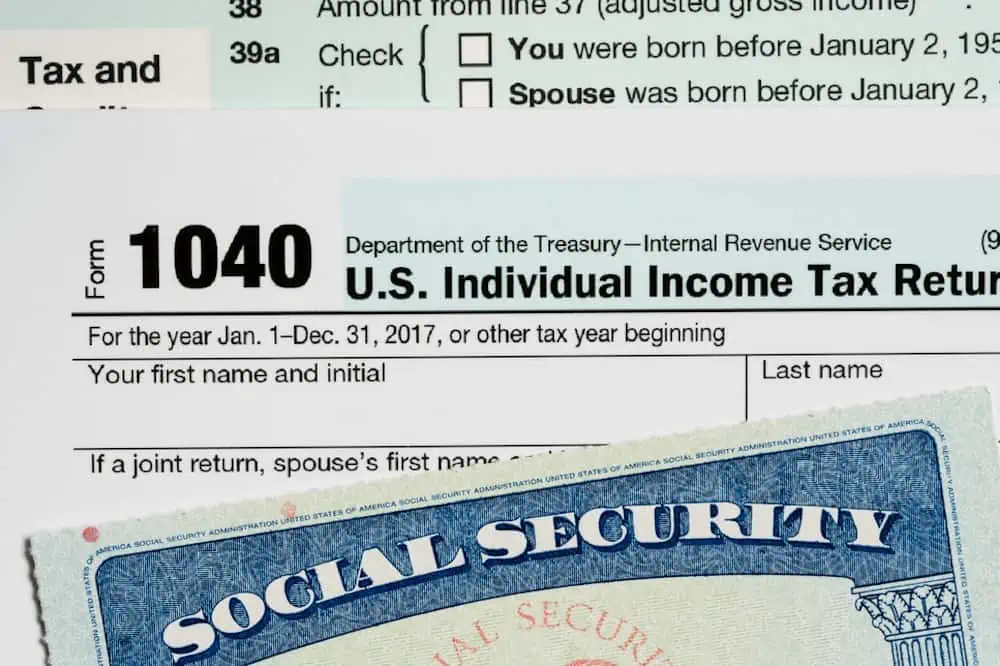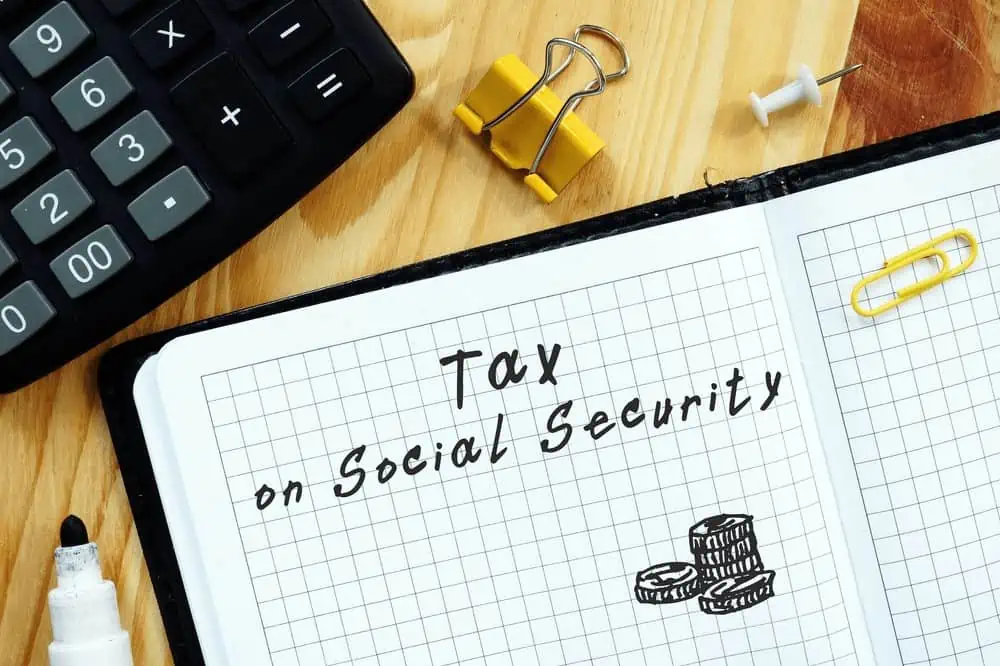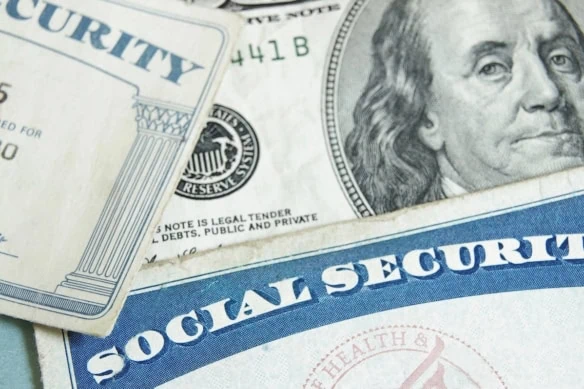Social Security, a cornerstone of American retirement security, is facing a potential overhaul that millions of Americans stand to directly benefit from should proposed legislation pass into law.
The Social Security Fairness Act is a bipartisan bill that aims to rectify a long-standing loss of Social Security benefits for an estimated 3 million public servants, including firefighters, police officers, and teachers, among others.
If the legislation is passed by the Senate and signed into law by either President Joe Biden or President-Elect Donald Trump, affected public servants’ benefits would no longer fall subject to two provisions designed to reduce their Social Security benefits.
The House of Representatives voted 327-75 (with one “Present” vote) in November to pass the bill. And although we’re in the final days of a lame-duck Congress, Senate Majority Leader Chuck Schumer (D-NY) has indicated that the Senate could take up the bill before the end of the year.
Featured Financial Products
What Are the Rules Limiting Social Security Benefits to Public Servants?

The Windfall Elimination Provision (WEP) and the Government Pension Offset (GPO) are two complex rules that can significantly reduce Social Security benefits for individuals who have worked in both Social Security-covered and non-covered employment, such as government or state jobs.
These rules were designed to prevent double-dipping in both Social Security and various government pension systems, but they often result in unexpected and substantial reductions in benefits for public servants.
For instance, a non-covered college professor who taught for a state university and who also worked part-time at a covered for-profit online university might see their Social Security benefits reduced because of the WEP. Similarly, a spouse of a public employee with a government pension could face a reduction in survivor or spousal benefits under the GPO. These penalties can have a devastating impact on the retirement security of many Americans who have spent their lives serving their communities.
The WEP can’t fully reduce a person’s own retirement or disability Social Security benefits to zero dollars. But the GPO can result in a completely zeroed-out benefit payment for spousal or survivors benefits.
Related: How to Maximize Social Security Spousal Benefits
The Social Security Fairness Act

The Social Security Fairness Act seeks to repeal both the WEP and the GPO, ensuring that public servants receive the full Social Security benefits they have earned for themselves or through their spouses’ qualifying work records.
Originally proposed by Representative Garrett Graves (R-LA) in January, 2023, this bipartisan legislation has gained significant momentum in recent months. The House version of the bill (H.R. 82 – Social Security Fairness Act of 2023) passed in November of this year with overwhelming support.
Now, the Senate version of the bill, S.597 – Social Security Fairness Act, is currently awaiting a vote in Congress’s upper house, where it has also garnered bipartisan support, with 62 senators co-sponsoring the bill.
Senate Majority Leader Chuck said on Dec. 12 that he would begin the process to secure a final vote on the bill by year’s end, catching many by surprise. “[The bill would] ensure Americans are not erroneously denied their well-earned Social Security benefits simply because they chose at some point to work in their careers in public service,” Schumer said.
Related: 10 Common Social Security Mistakes You Should Know
Fiscal Implications of the Social Security Fairness Act

Despite broad-based support for the legislation, the bill is not without detractors.
A handful of Republican senators have voiced concern over the fiscal implications, citing a report from the Congressional Budget Office, a non-partisan budget estimation office within the federal government.
In a letter, the CBO stated that the bill, as proposed, would cost more than $190 billion over a decade. The organization said the Social Security trust fund could “be exhausted roughly half a year earlier than it would be under current law.”
Sen. Chuck Grassley (R-IA) told The Hill, “If that bill passes, it’s going to bring [Social Security] back six or seven or eight months and when [the Social Security trust fund] is running out of money, that’s a very serious thing you have to take into consideration.”
“Nothing ever gets paid for, so if it’s further indebtedness, I don’t know,” added Sen. Mike Braun (R-IN), who told the Associated Press he is still “weighing” whether to vote for the bill next week.
This skepticism comes on the heels of the recent 2024 Annual OASDI Report of the Social Security Trustees, which shows that if no changes are implemented, the Social Security Trust will remain solvent for less than a decade.
Proponents of the Social Security Fairness Act argue that the long-term impact on the program’s finances would be minimal, and that the benefits of providing fair treatment to public servants outweigh any potential drawbacks. They contend that the WEP and GPO have been particularly harmful to lower-income workers and women, who are more likely to work in public service jobs.
Featured Financial Products
Related: How Much Social Security Will I Receive?
How Big Is the Average Social Security Benefits Check?

As of August 2024, the average monthly check for a Social Security retirement benefits recipient was $1,783 … but that number can vary substantially by person.
How much you receive as your benefit depends on several factors, including the age you started taking Social Security, your lifetime earnings, the number of years you worked, and, in certain circumstances, whether you’re a government worker with a pension affected by the Windfall Elimination Provision or the Government Pension Offset.
Also, some people receive Social Security spousal benefits, so their eligibility is largely based on their spouse’s work history, rather than their own.
Related: How to Invest for (And in) Retirement: Strategies + Investment Options
Related: How Are Social Security Benefits Taxed?

In many cases, Social Security benefits are subject to federal taxation. To learn how your Social Security benefits are taxed, we’ve got an entire guide to walk you through the calculation.
Related: 11 Ways To Avoid Paying Taxes on Your Social Security

If you’re looking to minimize the tax bite taken out of your Social Security benefits in retirement, you’ve got several available actions to reduce how much you pay each year. We outline several ways to avoid paying taxes on your Social Security benefits.
Please Don’t Forget to Like, Follow and Comment

Did you find this article helpful? We’d love to hear your thoughts! Leave a comment with the box on the left-hand side of the screen and share your thoughts.
Also, do you want to stay up-to-date on our latest content?
1. Follow us by clicking the [+ Follow] button above,
2. Subscribe to The Weekend Tea, our weekly newsletter to read more about investing, spending, taxes, and more, and
3. Give the article a Thumbs Up on the top-left side of the screen.
4. And lastly, if you think this information would benefit your friends and family, don’t hesitate to share it with them!




